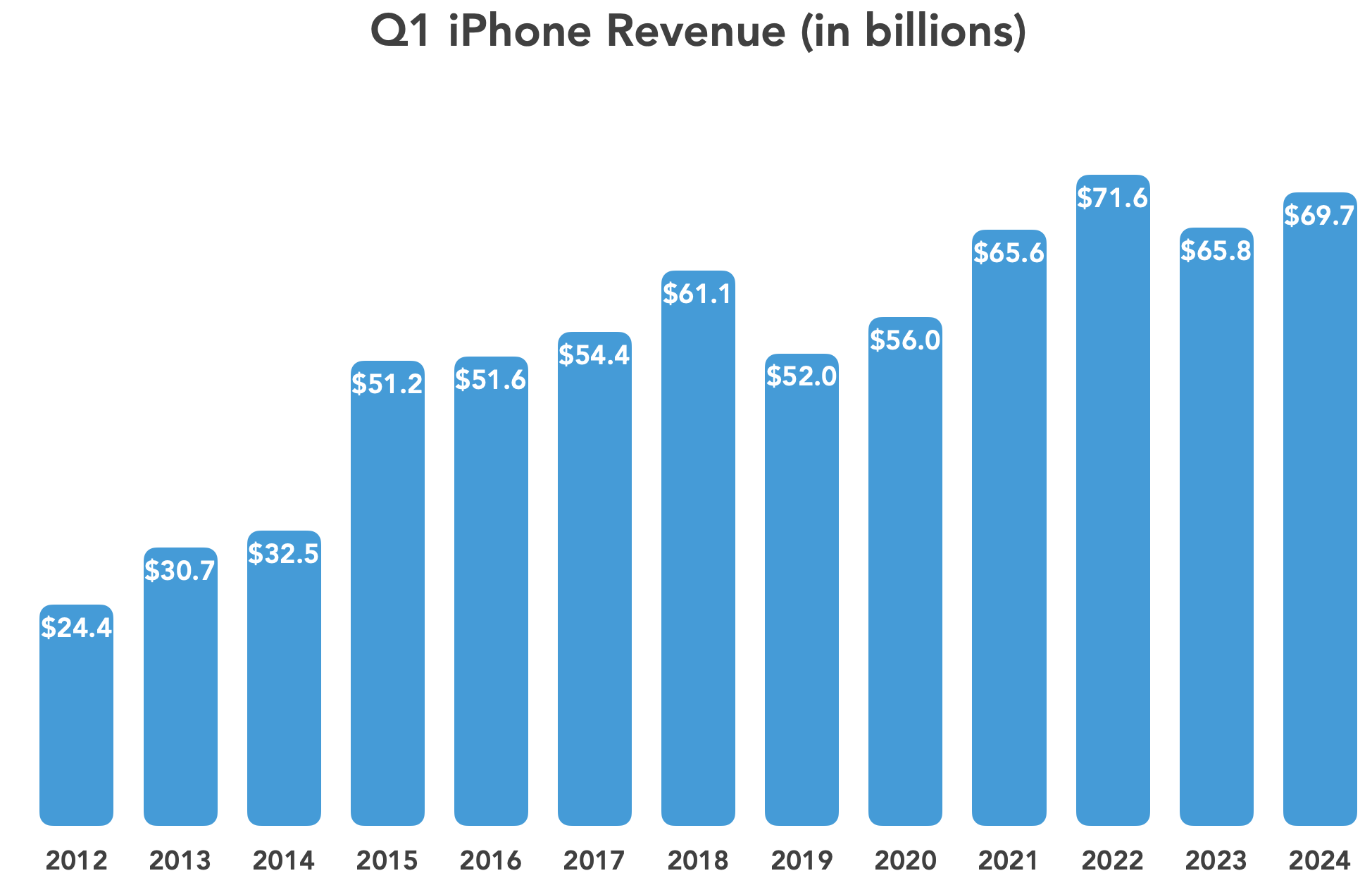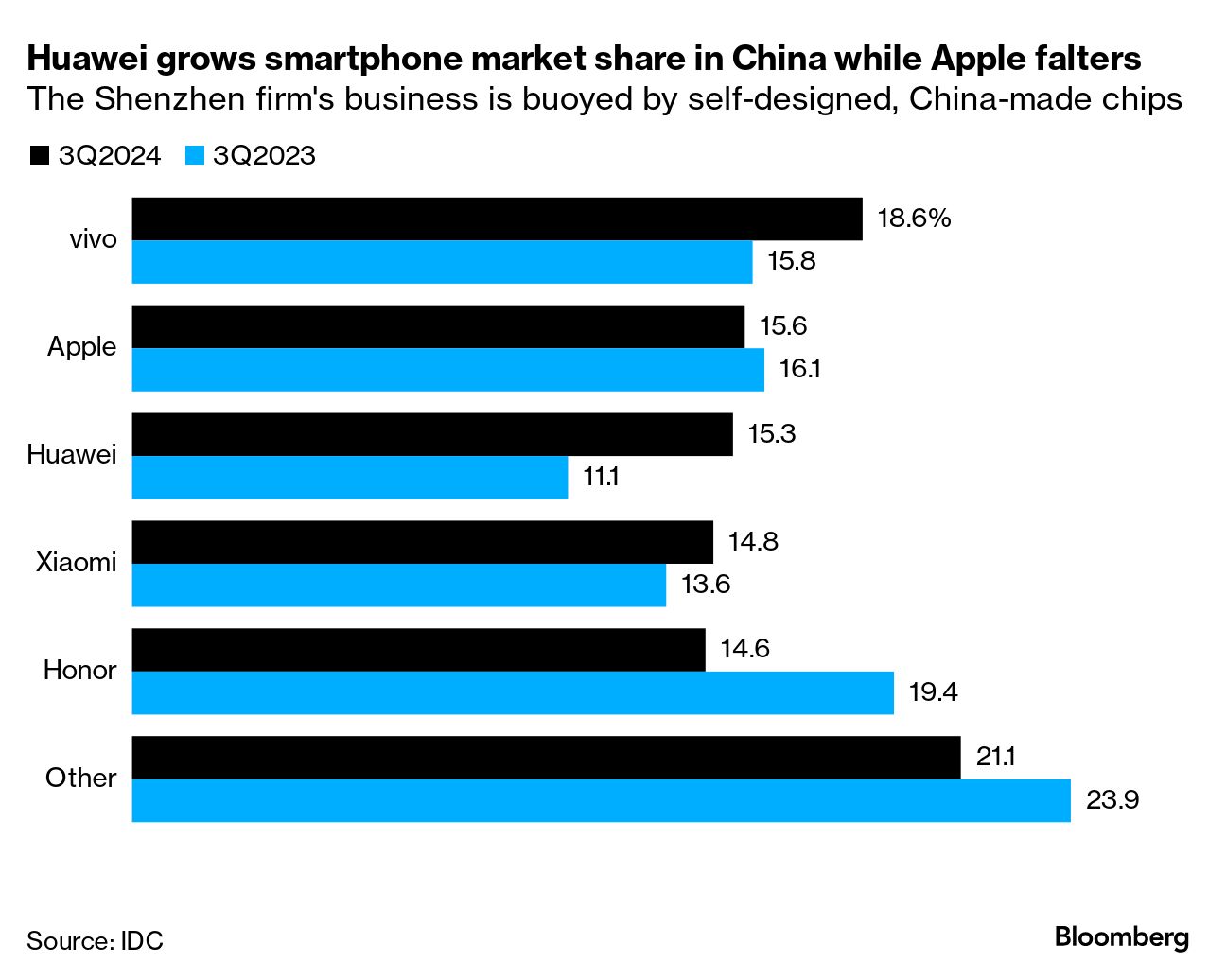Is Apple Losing Its Edge? iPhone Sales Stall While Android Sales Rise
- Apple's iPhone sales aren't growing like you'd expect—something's up.
- Android smartphones are taking off globally, leaving Apple trailing behind.
- Huawei is making waves in China, and it's not good news for Apple.
In a surprising turn of events, Apple's iPhone seems to be losing some of its global shine. While the worldwide smartphone market is bouncing back, the tech giant's growth remains sluggish compared to its Android competitors.
Global Smartphone Sales on the Rise
According to a recent study by market intelligence firm IDC, global smartphone shipments are expected to hit 1.24 billion units this year, marking a 6.2% increase from the previous year. This rebound is largely driven by pent-up demand and growth in regions where smartphones are still penetrating the market. Photo via ThinBorne // The Apple iPhone 16 series, launched in September 2024. For Apple's latest iPhone, the focus has very much been on its artificial intelligence featureset dubbed Apple Intelligence.
Photo via ThinBorne // The Apple iPhone 16 series, launched in September 2024. For Apple's latest iPhone, the focus has very much been on its artificial intelligence featureset dubbed Apple Intelligence.
Apple's Modest Performance
Despite the overall market upswing, Apple's iPhone sales are projected to grow by a mere 0.4%. In contrast, Android smartphones are enjoying a robust 7.6% growth, particularly in markets across the Asia Pacific, Africa, the Middle East, and Latin America. The affordability of Android devices from Chinese brands has significantly boosted their global presence.
Profit Leader but Growth Laggard
The good news for Apple is that it continues to lead the industry in profitability. With iPhones averaging around $1,000 per unit, Apple's premium pricing strategy keeps its revenue strong. In October, iPhone sales contributed $46.22 billion to Apple's total revenue of $94.9 billion, marking a 6% year-over-year increase. Photo via TidBits // Graph: Apple iPhone revenue (2012-2024).
Photo via TidBits // Graph: Apple iPhone revenue (2012-2024).
Challenges in the Chinese Market
Apple is facing stiff competition in China, its second-most important market. Data released by the China Academy of Information and Communications Technology showed that sales of foreign-branded smartphones, including iPhones, fell by over 44% year-on-year in China in October. Meanwhile, overall phone sales in China increased by 1.8%.
The Rise of Huawei
A significant factor in Apple's Chinese market struggle is the resurgence of Huawei. The Chinese tech giant has captivated local consumers with its Mate series smartphones. The recently launched Mate 70 series, described by Huawei's consumer group chairman Richard Yu as the company's smartest phone yet, boasts advanced AI capabilities and improved photography features, all powered by Huawei's own HarmonyOS.
Huawei's ability to self-supply the chips needed for its devices marks a pivotal development, especially after previous U.S. restrictions limited its access to key partners and suppliers. Chinese consumers are increasingly opting for Huawei's smartphones, drawn by the appeal of locally made technology. Photo via Bloomberg (IDC) // Graph: Huawei, a Chinese smartphone maker, grows its market share in China while Apple's sales decline. (Pictured: Q3 2023 vs. Q3 2024).
Photo via Bloomberg (IDC) // Graph: Huawei, a Chinese smartphone maker, grows its market share in China while Apple's sales decline. (Pictured: Q3 2023 vs. Q3 2024).
Is the iPhone Losing Its Edge?
It begs the question: are iPhones no longer as popular as they once were? While Apple maintains its status as a premium brand, the minimal growth figures suggest a shift in consumer preferences, especially in markets where affordable and feature-rich Android phones are readily available.
Looking Ahead
The IDC predicts that Apple may see better performance in 2025, forecasting a 3.1% growth in iPhone sales compared to a projected 1.7% for its rivals. In a move that underscores the importance of the Chinese market, Apple CEO Tim Cook is visiting China this week—for the third time this year—to attend an industry conference. Photo via Apple Scoop // Apple's next major iPhone launch, expected to be the iPhone 17 series, may launch with an ultra-slim model that is e-SIM only.
Photo via Apple Scoop // Apple's next major iPhone launch, expected to be the iPhone 17 series, may launch with an ultra-slim model that is e-SIM only.
Conclusion
Apple's journey reflects the dynamic nature of the global smartphone market. While it continues to lead in profitability, emerging competition from Chinese brands like Huawei poses new challenges. Only time will tell if Apple can regain its growth momentum and adapt to the evolving landscape.
Recommended by the editors:
Thank you for visiting Apple Scoop! As a dedicated independent news organization, we strive to deliver the latest updates and in-depth journalism on everything Apple. Have insights or thoughts to share? Drop a comment below—our team actively engages with and responds to our community. Return to the home page.Published to Apple Scoop on 30th November, 2024.
No password required
A confirmation request will be delivered to the email address you provide. Once confirmed, your comment will be published. It's as simple as two clicks.
Your email address will not be published publicly. Additionally, we will not send you marketing emails unless you opt-in.